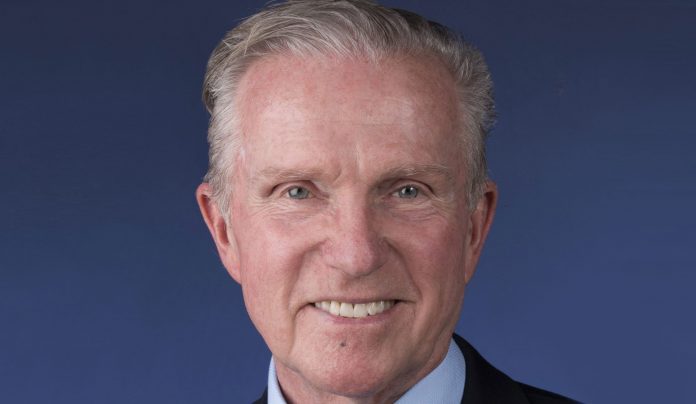Dr. Sangeeta Mahajan is a remarkable woman. She is a consultant anesthetist at Guy’s and St Thomas’ NHS Foundation Trust in London, England. She lost her 20-year-old son, Saagar Naresh, to suicide, after a very brief illness, in October 2014. Since this tragedy, she has become a tireless advocate for people living with a psychiatric illness, including physicians. Referring to herself as a mental health activist and educator, she writes and speaks in an effort to break the stigma of mental illness and make people feel less alone.
I had the pleasure of meeting Dr. Mahajan at the International Practitioner Health Summit Conference “The Wounded Healer” in London in September 2018. (I wrote about another aspect of this conference in an earlier blog piece this year.) Dr Mahajan and I chatted about our many overlapping interests and the challenges of mental health advocacy in the world of medicine. After I returned home, she sent me an email with a link to a talk she had given at an Association of Anaesthetists meeting in the United Kingdom. Here are some sentences from my response to her:
Sangeeta,
I’ve just watched your lecture. I will never forget it. So moving, powerful and embracing. What you’ve shared with your colleagues is a gift and call to arms. I believe that our colleagues are craving information like you’ve transmitted. We need a revolution to make sure that medical education incorporates self-care and care of each other. Thank you for including both the photo of the young doctor whom you lost 10 years ago to suicide and your beautiful son Saagar. Putting a face to this human tragedy is key. Otherwise, physicians just get caught up in statistics and don’t think about the actual loss of life. I look forward to our paths crossing again.

I was thrilled to receive an email from her in June saying she was coming to the United States in the fall and was hoping to spend a bit of time with me learning more about my work in physician health and suicide. She would be visiting as a Churchill Fellow focusing on suicide prevention. I had just accepted an invitation to give grand rounds on this subject to our Anesthesiology Department in October and serendipitously that date coincided with her presence here. Most notably, the date fell within days of the fifth anniversary of Saagar’s death. We gave a combined rounds with my portion called “Physician Suicide: What You Can Do to Save a Life” and hers aptly named “Being Human.”
I can shamelessly state that the event was fantastic. My talk covered what we know (and don’t know) about this vexing subject and what we collectively need to do to stop doctors from killing themselves. It was pragmatic and strategic, something that appeals to the “modus operandi” mission of doctors. Her talk—delivered by kin, a fellow anesthesiologist—spoke to their hearts, their souls. They—medical students, residents, fellows, and attendings—were galvanized. And there were moist eyes. It was both the tone and the grace of her lecture that was so captivating. The department chairperson, who had never met her before, gave her a warm hug at the end.
The rest of Dr. Mahajan’s visit addressed her curiosity about mental health care and models of delivery. We visited our behavioral health services unit at Kings County Hospital Center, enabling her to meet some of our psychiatry and psychology faculty including many of our residents. She especially wanted to tour the general emergency room, our CPEP (Comprehensive Psychiatric Emergency Program) and our inpatient facilities. Her questions were far-ranging , generous, and bountiful.
Her Churchill fellowship enables her to travel to Australia in March 2020. I’ve been able to make e-introductions of her to medical colleagues I have in Melbourne who are only too happy to meet with her. After spending time here in at the National Alliance on Mental Illness, she will also visit Beyond Blue in Australia to learn more about their nonprofit organization addressing anxiety disorders, depression, and suicide in their country.
Like most survivors of suicide loss, Dr. Mahajan does not want her son to have died in vain. His life was cut short by the rapid onset of a crippling mood disorder. Her focus is on diagnostic and treatment challenges in young people. I know that her commitment, her study, and her ultimate report to the Winston Churchill Foundation will contribute to suicide prevention. I also know that her compassion will continue to touch everyone on her journey. That is a gift to all.
Visit Dr. Mahajan’s website at www.sangeetamahajan.org and her blog at www.kidsaregifts.org.
Dr. Myers is Professor of Clinical Psychiatry and immediate past Vice-Chair of Education and Director of Training in the Department of Psychiatry & Behavioral Sciences at SUNY-Downstate Medical Center in Brooklyn, NY. He is the author of 8 books, the most recent of which are “Why Physicians Die by Suicide: Lessons Learned from Their Families and Others Who Cared” and “The Physician as Patient: A Clinical Handbook for Mental Health Professionals” (with Glen Gabbard, MD). He is a specialist in physician health and has written extensively on that subject. Currently, Dr. Myers serves on the Advisory Board to the Committee for Physician Health of the Medical Society of the State of New York. He is a recent past president (and emeritus board member) of the New York City Chapter of the American Foundation for Suicide Prevention.
The views expressed on this blog are solely those of the blog post author and do not necessarily reflect the views of the Psychiatry & Behavioral Health Learning Network or other Network authors. Blog entries are not medical advice.
This article was first published on 4 December 2019 on Psych Congress.









